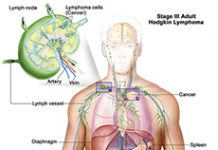
We love a clean, healthy smile, right? The profession of dental hygiene and the advancements in the practice of dental hygiene have come a long way, even since I graduated from dental hygiene school in 1994. It is standard of care in dentistry that you are provided with an oral cancer screening during your dental examination. Close to 53,000 Americans will be diagnosed with oral cancer this year, please make sure you are receiving an oral examination at least once a year, even if you are missing teeth. October is National Dental Hygiene Month. The month is dedicated to promoting healthy mouths across the country and celebrating the commitment of your dental hygiene team to providing optimal oral health for their patients.
HOW TO OBSERVE NATIONAL DENTAL HYGIENE MONTH
- Floss Every Day
There are things that brushing just cannot achieve, and that’s where flossing comes in. Flossing is the only way to clean the plaque, food debris, and cavity causing bacteria out from where the teeth touch side-by-side. Even if you are using an oral irrigator, you still need to floss once daily. I agree that flossing may not be the best choice for cleaning deep under the gum, an oral irrigator is more efficient under the gums, but floss is the best for preventing cavities where the teeth touch.
- Brush Twice a Day for Two Minutes
Brushing your teeth twice a day not only helps to battle morning breath and that bad taste in your mouth, it also helps reduce the chances that you will develop gum disease and cavities. Dental plaque is sticky, it requires some work to remove it. Two minutes with a manual or sonic toothbrush is recommended. Don’t’ forget to use a toothpaste with fluoride to protect your teeth and gums, a great choice is Arm & Hammer toothpaste, due to its ability to neutralize acids and low abrasion properties. My toothbrush of choice is the Sonicare by Philips, I have been using this brush for over 20 years. Your teeth will feel almost as clean as they do after your professional cleaning when you use this brush.
- Use an Oral Irrigator
Oral Irrigators use a stream of pressurized, pulsating water to clean between teeth and below the gum line. They are great for patients with orthodontic appliances, crowns, bridges, implants, pocketing, bone loss, and dexterity concerns. The oral irrigator is also called a dental water jet or a water flosser. A common brand name is called waterpik, manufactured by Water Pik. You can add your favorite mouthwash to the water and deliver the bacteria reducing product directly where it needs to be. Follow the manufacturer instructions, do not exceed a 1:1 ratio of mouthwash to water. This helps prevent clogging of the machine.
- Use Mouthwash
Rinse after brushing and flossing. Using mouthwash can help to reduce the bacteria that causes gum disease and cavities, not to mention it will get rid of your morning breath and that bad taste after a long day. If you have dry mouth, or get frequent mouth sores, you may want to choose an alcohol-free mouthwash. There are different solutions to choose from; cavity protection, antibacterial, and moisturizing mouthwashes are available if you suffer from dry mouth symptoms. Some patients will benefit from a prescription strength mouthwash if they are prone to cavities or have an active gum infection, your dental team will suggest what is best for your needs.
- Visit the Dentist Regularly
It is recommended by the ADA to visit the dentist at least twice a year for your check-up and professional cleaning. Some patients may benefit from more frequent cleanings, this should be determined by your dentist and hygienist. Patients with full mouth dentures should visit the dentist at least once a year for an oral cancer screening and exam. If your gums are bleeding when you brush or floss, then you are most likely in need of a dental cleaning. Proper brushing and flossing are not enough to cause bleeding, bleeding gums are an indicator that there is inflammation. When bacteria are present, blood will form under the surface of your gums and cause them to swell. This makes it extremely easy for them to bleed. I always tell my patients to think of your gums as skin, the only time your skin would bleed during cleaning, is if there were an infection under the surface. The only exception to this rule is if a patient is on a prescribed blood thinner, they may notice bleeding when performing normal oral hygiene measures.
Daily stressors can show up on our teeth, gums, and bone. Bruxism, which is the grinding or clenching of your teeth, is the number one most common sleep disorder, and widely under-diagnosed. If you’re waking up with headaches, sensitive teeth, sore or tired jaw, you most likely are mashing your teeth in your sleep. Bruxism can also present itself with no symptoms or complaints from patients, but there are definite signs on the teeth. These signs are, chipped teeth, flat teeth, cracks in the enamel, chips at the gumline, receded gumline, sensitive teeth, and bone loss. These are all irreversible and need to be addressed with wearing an occlusal appliance. You can purchase night guards over- the- counter, however, they should only be worn temporarily, visit your dentist to be evaluated and fit for a custom appliance.
- Be Conscious of What You are Putting in Your Mouth
Hydration is important for the health of your teeth and gums. Drink at least 64 oz of water to help keep the teeth clean and strong. Keep snacking on sweets and acidic foods and beverages limited. It is much safer for the teeth to consume those products in shorter periods of time, then to slowly consume them over longer periods of time. About 70% of people diagnosed with oral cancer have admitted to being heavy alcohol drinkers or use tobacco products. Your risk is higher when using these products, this is another important reason to visit the dentist. Your dentist cares about your overall health, for this reason, the oral cancer screening is a standard routine with your examination every six months. Your dentist will provide an intra oral exam (inside the mouth) and an extraoral exam (outside the mouth) as a part of the oral cancer screening. If your dentist spots something of concern, you may be referred to an oral surgeon for a further exam or biopsy. Please be sure to report any difficulty swallowing, speaking, or moving your tongue to your dental team. Here is a list of what your dental team is looking for during the exam:
- Thickening, crusty, or hardened spots on the lips tongue, cheeks, gums, face, or neck.
- Red or white patches on the lips, tongue, cheeks, gums, face, or neck.
- Abnormal lumps or bumps on the lips, tongue, cheeks, gums, face, or neck.
Kimberly Meehan, RDH, is a practicing dental hygienist at Todd A. Fleischman & Associates, in Philadelphia, Pennsylvania. She is a 1994 graduate of Community College of Philadelphia’s Dental Hygiene Program. Kimberly is also the CEO/Dental Hygiene Consultant for KMC Hygiene and Founder of Support Sacks, a charity that supports women in recovery. She is married to her husband James, who works for the Naval Surface Warfare Center Philadelphia Division, and serves in the United States Air Force Reserve. They reside in Brooklawn, New Jersey, where Kimberly is Chairmen of the Planning and Zoning Commission. In her spare time, she enjoys running, cycling, CrossFit training, skiing, relaxing on the beach, and pageantry. Kimberly is the former Mrs. New Jersey International 2008, and she currently is a Co-Director of the New Jersey International Pageants, a platform for women to raise awareness and promote community service.






